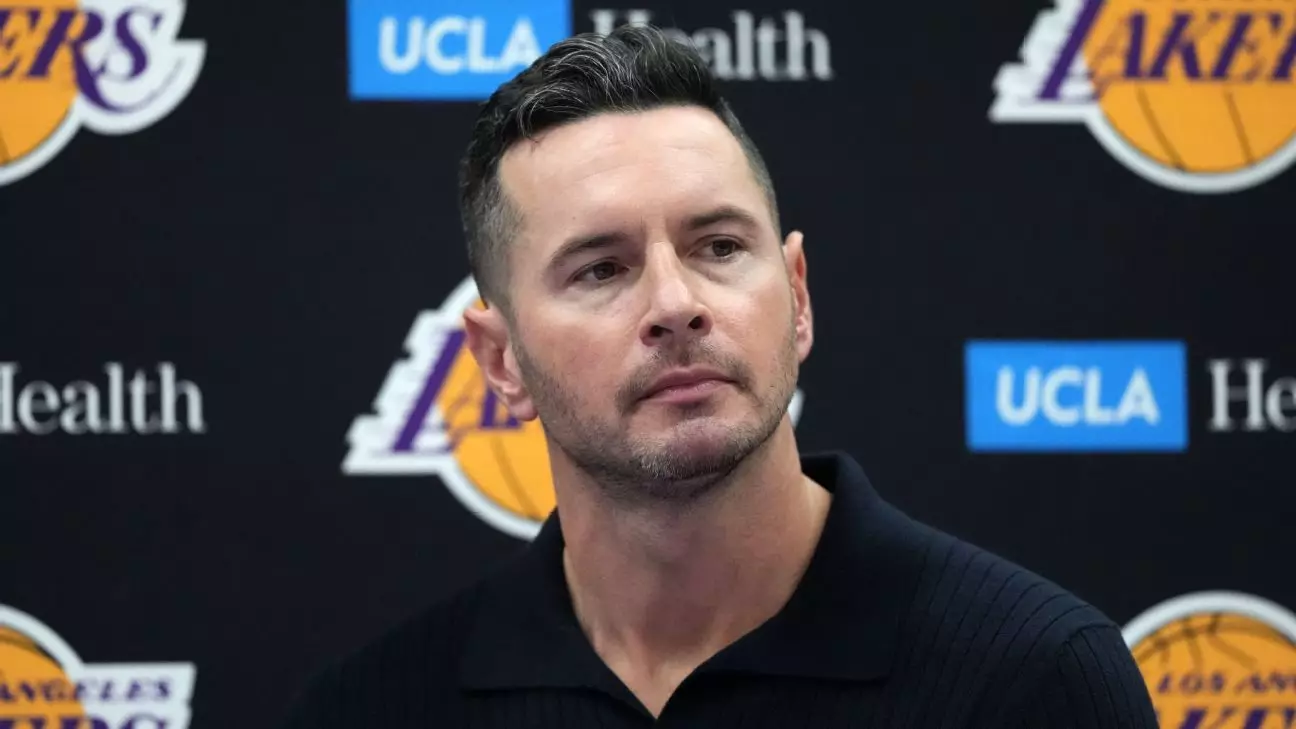As former NBA player JJ Redick embarks on a challenging new journey as head coach of the Los Angeles Lakers, the intertwining roles of media commentator and team leader come into sharp focus. This transition is not merely about changing titles; it encapsulates the intricate relationships, past experiences, and the emotional weight carried by professional athletes and coaches alike. This article delves into the complexities surrounding Redick’s new role, particularly concerning accountability, relationships within the coaching fraternity, and how public commentary can influence team dynamics.
Redick’s transformation from an NBA analyst to a head coach is both an exciting venture and a potential minefield. His previous role, which often involved delivering critical insights and unapologetic evaluations, has undoubtedly shaped his perspective on the game. In February, he openly critiqued his former coach, Doc Rivers, highlighting issues of accountability and excuses within the game. These remarks, made during a segment on ESPN’s First Take, were passionate yet pointed, reflecting both the competitive nature of sport and Redick’s personal commitment to the values of professionalism.
As Redick now dons the coaching cap, one cannot help but wonder how his previous criticisms will impact his approach to team management. Coaches must often balance candid evaluations and motivation, creating an environment for players to thrive. Redick acknowledged that he would likely alter the tone if given the chance, recognizing that his previous delivery may have strayed from constructive criticism into potentially damaging territory. This understanding is critical as he works to foster a positive atmosphere in the Lakers camp, one that emphasizes growth rather than divisiveness.
The relationship between a coach and players is rarely straightforward; it often comprises layers of respect, conflict, and ultimately, mutual growth. Doc Rivers, a seasoned coach with an extensive resume, addressed his history with Redick by asserting that any discord was largely one-sided. When athletes and coaches fail to align, the repercussions can extend far beyond the court. Rivers emphasized the unconditional support that coaches typically provide, and the heartbreak that often accompanies players’ rejection of such investment.
This sentiment is particularly poignant in the context of professional sports, where the stakes are high, and winning often trumps the personal nuances of relationships. The friction generated from differing views can lead to a lack of accountability, a recurring theme in discussions around coaching efficacy. As Redick assumes his new role, he must be mindful of the lessons inherent in Rivers’ experience: success is often the product of collaborative effort, wherein accountability is shared rather than evaded.
The landscape of professional sports has evolved, with media commentary playing a pivotal role in shaping public perception not only of players but also of coaches. This dynamic was evident in Redick’s experience, where his critique of Rivers was scrutinized and amplified through various media channels. Such exposure can have significant repercussions for those involved, creating an atmosphere of trepidation that could stifle open dialogue and honesty.
Conversely, media commentary can also serve as a tool for positive change, pushing for accountability in a league where performance is paramount. Reflecting on his prior comments, Redick has gained insights into how his once-criticized views could potentially shape his coaching philosophy. As he embarks on a path where every decision is subject to scrutiny, he will need to uphold the values he espoused as an analyst while forging a new identity as a mentor.
The path to success for Redick lies in recognizing the myriad influences surrounding him—his past as an analyst, his relationships with coaches, and the interplay between media and basketball culture. For Darvin Ham, who now serves as an assistant for the Bucks after a tumultuous tenure as the Lakers’ head coach, the complexities of this transition are also evident. Ham’s journey embodies the challenges and growth intrinsic to the coaching profession, demonstrating the fragile boundary between success and failure.
As Redick navigates the complexities of coaching in the NBA, he must balance the lessons learned from his past with an eye toward fostering collaboration, trust, and accountability in his team. The road ahead is fraught with challenges, but with reflection and a commitment to growth, Redick has the potential to craft a legacy that bridges his analytical insights with effective coaching strategies in the ever-evolving world of professional basketball.


Leave a Reply